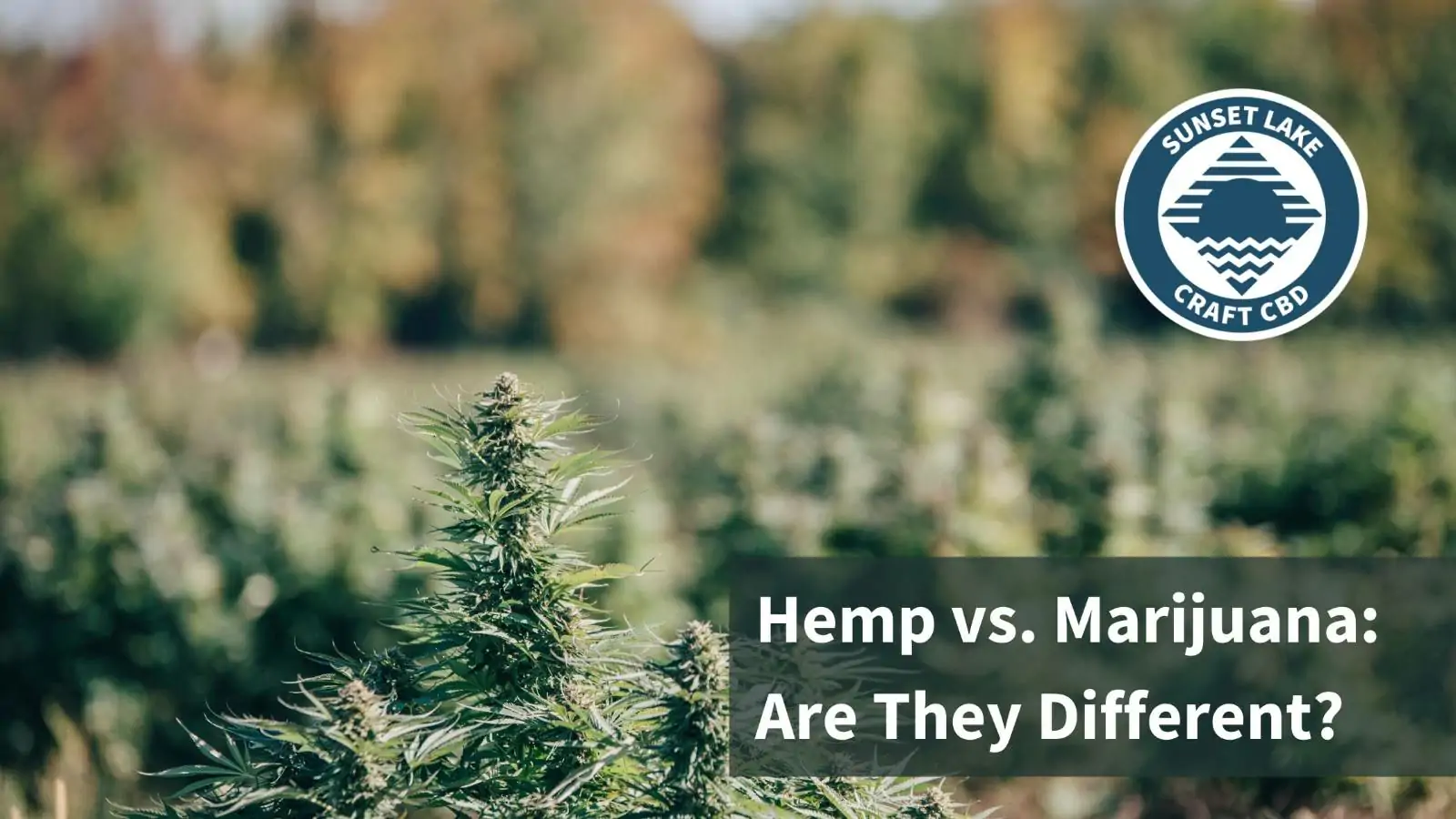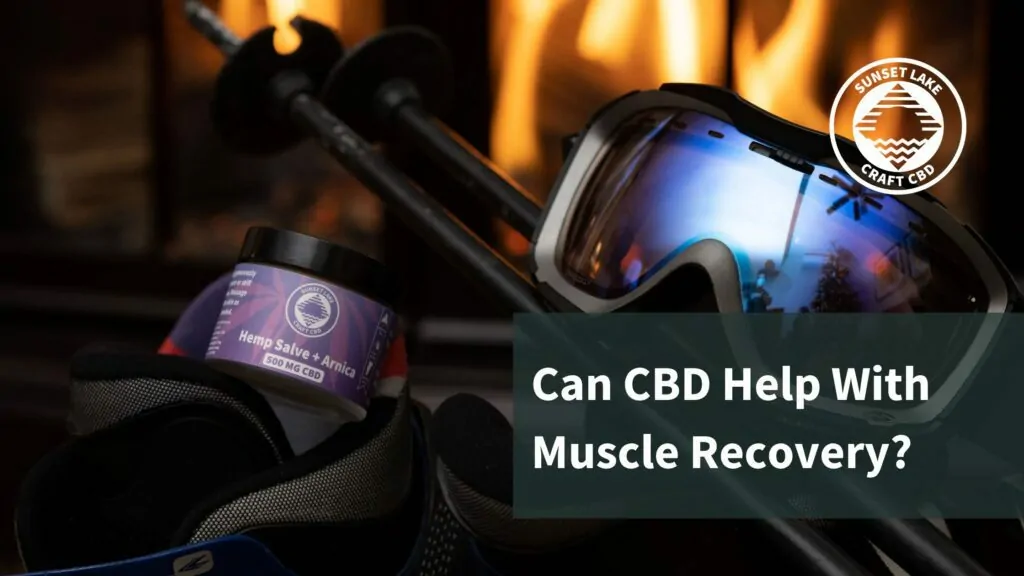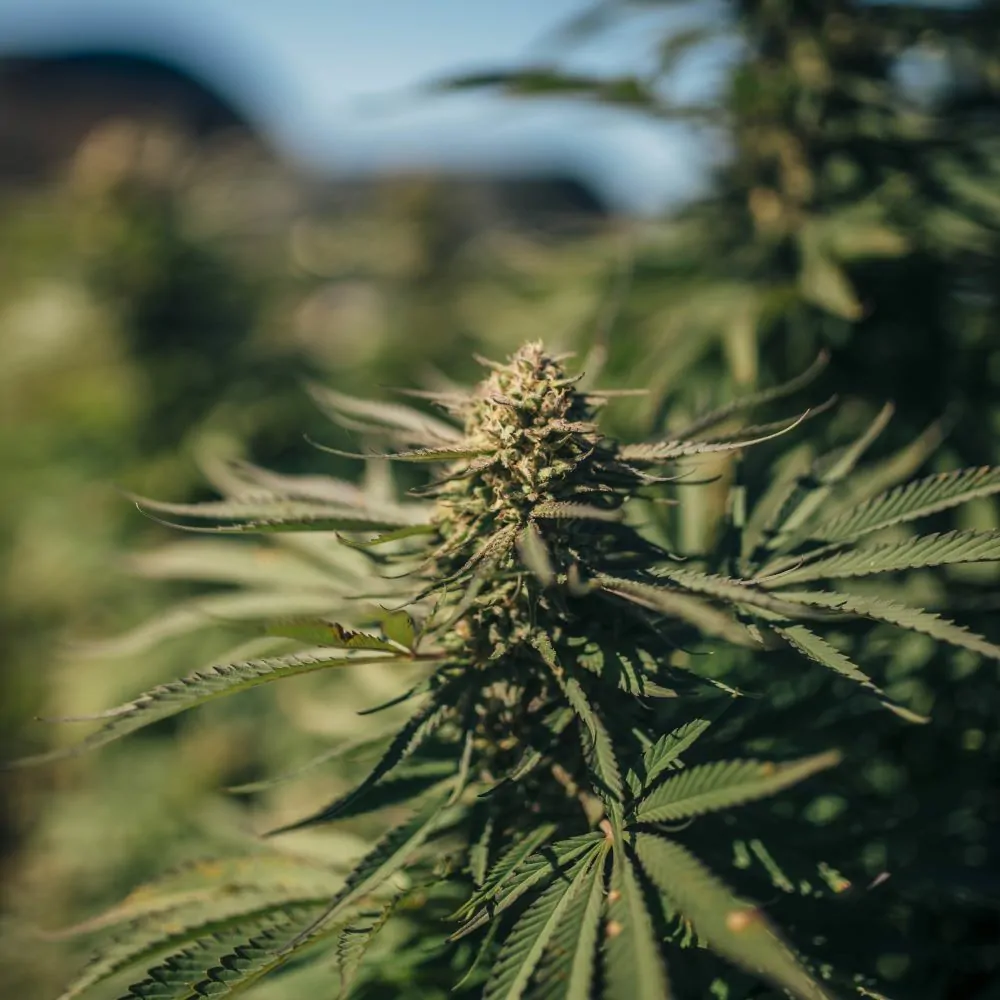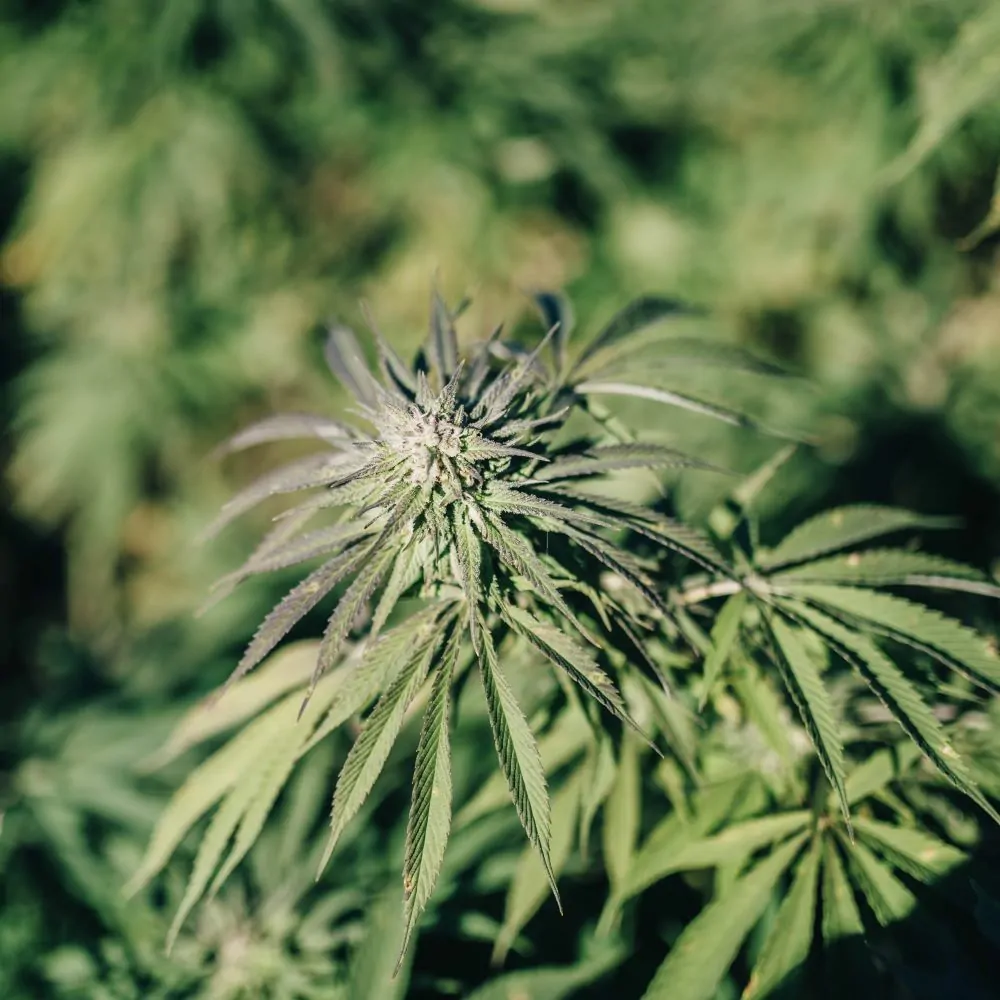No products in the cart.
CBD Hemp vs. Marijuana: Are They Different?

You may have noticed the “CBD hemp flower” lining the shelves of your local headshop looks exactly like marijuana. But how can that be? Marijuana is a controlled substance only sold in dispensaries (or not at all in some states.) Is CBD just a new way to market weed, or are there tangible differences between CBD hemp vs. marijuana?
In short, they are different. Quite a bit different, actually. By the end of this post, you’ll know the differences between hemp vs. marijuana and,
- The legal definitions of each
- Differences in their respective dominant cannabinoids
- The legality and availability of each
- And we’ll answer some of the internet’s most common questions
CBD Hemp Vs. Marijuana: What’s The Difference?
Above are two different cannabis plants. One is a picture of Afghan Kush, a THC marijuana cultivar grown by our sister company, Sunset Lake Cannabis. The other is one of Sunset Lake CBD’s Lifter hemp plants.
Both hemp and marijuana come from cannabis plants (though with different genetics.) One set of genetics expresses higher concentrations of CBD, while the other expresses higher concentrations of THC.
Technically speaking, CBD hemp flower contains less than 0.3% delta-9 THC calculated on a dry weight basis. Marijuana is any cannabis flower that tests over that 0.3% delta-9 THC threshold.
What Is CBD?
CBD is short for cannabidiol and a non-psychoactive cannabinoid produced by cannabis plants. That means that you won’t feel high or intoxicated after consuming CBD.
What Is THC?
THC, shorthand for delta-9 tetrahydrocannabinol, is the cannabinoid produced by cannabis responsible for intoxication and psychoactive effects. Because it makes users feel “high,” the Drug Enforcement Administration considers delta-9 THC a Schedule I substance.
Schedule I classification means that the substance has no medicinal or therapeutic value. This writer thinks that the classification is outdated and steeped in politics, but we’ll get into that later.
THC vs. CBD
The real differences between hemp vs. marijuana are in the cannabinoids that each expresses. Hemp expresses high levels of CBD and low levels of THC. Marijuana, on the other hand, usually expresses high THC levels.
Unlike CBD, THC can:
- Induce a euphoric-like high in its users
- Trigger feelings of anxiety or paranoia
- Heighten a user’s awareness
- Make users experience time dilation
- Make you fail a workplace drug test
The Legality Of CBD Hemp vs. Marijuana
Congress and the FDA have yet to codify the line between hemp vs. marijuana.
The USDA considers hemp to be any cannabis that contains less than 0.3 percent THC based on the sample’s dry weight. That means any flower or finished cannabis product that contains more than 3mg of THC in a 1g sample is marijuana.
While this seems like a pretty clear definition, trust this writer, it isn’t. When Congress passed the 2018 Farm Bill, they only considered delta-9 THC content of a product. They didn’t consider a few important legal workarounds.
Unlike delta-9, the Farm Bill that legalized hemp missed the following intoxicating workarounds:
- THCa – THC’s precursor molecule. THCa turns into THC when heated and smoked through a process called decarboxylation.
- THC analogs – Delta-8 and delta-10 THC have similar effects to delta-9.
- The weight of hemp-derived CBD products and edibles. Edibles weigh much more than cannabis flower, meaning that they can contain much higher concentrations of THC than flower.
CBD’s Legality
Unlike marijuana, the USDA considers hemp a legal agricultural commodity. To prove compliance with USDA rules, cultivators must test their crops for THC content. Sunset Lake provides all of these documents, called certificates of analysis, under the Quality Tests page.
CBD Hemp vs. Marijuana For…
Pain
There is no definitive answer as to whether hemp or marijuana is better for pain. many users report using CBD to manage
- Inflammation
- IBS (Inflammatory bowel disease)
- Migraines
- Arthritis
Anxiety
Both CBD hemp and marijuana have been used to treat anxiety.
Some studies have demonstrated CBD hemp’s efficiency in reducing anxiety behaviors linked to:
- Post-traumatic stress disorder (PTSD) 1
- Generalized anxiety disorder (GAD) 2,3
- Personality disorder (PD) 2
Marijuana users report mixed findings when using THC to manage their anxiety. That may be because extreme doses of THC have been linked to feelings of anxiety and paranoia.

Recovery
As long as professional sports have been around, athletes have been testing positive for marijuana use. Is it just recreational, or does cannabis have physical recovery benefits?
Studies into CBD and THC have found that they both boast sleep benefits. CBD also has some anti-inflammatory properties.4 Better sleep and anti-inflammation are a powerful combination for muscle recovery.
Availability Of CBD Hemp vs. Marijuana
Because of THC’s legal status, shipping marijuana across state lines is still illegal.
However, CBD hemp’s status as an agricultural commodity means that it can be bought online and delivered to your door.
Frequently Asked Questions
Is CBD From Hemp The Same As CBD From Weed?
Chemically speaking, there is no difference between CBD derived from hemp and CBD derived from marijuana plants. Legally, there is. USDA-compliant CBD products must be made with CBD from hemp plants. No exceptions.
Is Hemp Better Than CBD?
This is a tough question to answer. CBD molecule comes from hemp, but it’s just one of many cannabinoids. For more on the other cannabinoids produced by hemp plants and how they all work together with CBD, see our blog post on the entourage effect here.
The other interpretation of this question is whether hemp products are better than CBD products. If that sentence is a bit confusing, don’t worry; you’re not the only one. There is indeed a difference.
Hemp products can refer to hempseed oil, a cold-pressed culinary oil rich in omega fatty acids. CBD products can incorporate seed oil, but their defining feature is that they contain the active cannabinoid cannabidiol.
Buyer beware: some companies mark up their hempseed products while masquerading them as CBD products. Don’t be fooled.
Can Hemp Make You High?
CBD hemp, by definition, has very minimal levels of THC, the cannabinoid responsible for intoxication. While it’s possible you could consume enough CBD products to get intoxicated on the trace amounts of THC, you’ll likely fall asleep first.
Is CBD Hemp Indica Or Sativa?
CBD hemp plants, just like cannabis plants in general, can be either Sativa, Indica, or auto-flowering (Ruderalis). Most commercial genetics will be a hybrid of both Sativa and Indica.
Does Hemp Show Up On A Drug Test?
CBD Hemp products can show up on a drug test. For more information about CBD and drug tests, please see our post about the topic here.
Editors note: This post was originally published on March 5, 2020, and was updated on July 2, 2024
Sources:
- Elms, Lucas et al. “Cannabidiol in the Treatment of Post-Traumatic Stress Disorder: A Case Series.” Journal of alternative and complementary medicine (New York, N.Y.) vol. 25,4 (2019): 392-397. doi:10.1089/acm.2018.0437
- Blessing, Esther M et al. “Cannabidiol as a Potential Treatment for Anxiety Disorders.” Neurotherapeutics : the journal of the American Society for Experimental NeuroTherapeutics vol. 12,4 (2015): 825-36. doi:10.1007/s13311-015-0387-1
- Wright, Madison et al. “Use of Cannabidiol for the Treatment of Anxiety: A Short Synthesis of Pre-Clinical and Clinical Evidence.” Cannabis and cannabinoid research vol. 5,3 191-196. 2 Sep. 2020, doi:10.1089/can.2019.0052
- Frane, Nicholas et al. “Cannabidiol as a treatment for arthritis and joint pain: an exploratory cross-sectional study.” Journal of cannabis research vol. 4,1 47. 24 Aug. 2022, doi:10.1186/s42238-022-00154-9
- “Farm Bill.” USDA, United State Department of Agriculture, 2018, <www.usda.gov/farmbill.>


